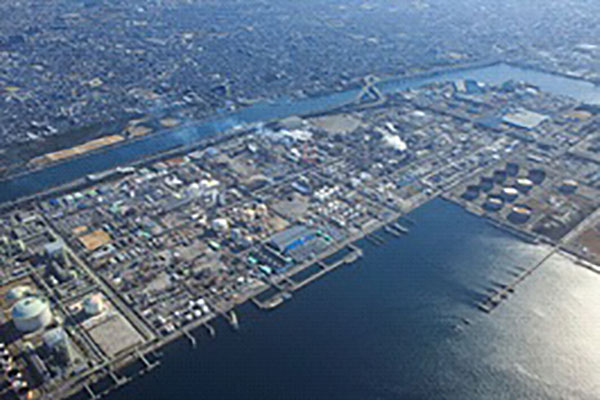Mitsui Chemicals Readies Japanese-First Production of Plastics, Chemicals From Bio-Based Hydrocarbons
2021.12.14
Mitsui Chemicals, Inc.
Mitsui Chemicals, Inc. (Tokyo: 4183; President & CEO: HASHIMOTO Osamu) today announced that it is readying to launch what will be Japan’s first production of biomass derivatives from bio-based hydrocarbons, a move that promises to help further the adoption of biomass plastic and bring society one step closer to carbon neutrality. With 3,000 tons of bio-based hydrocarbons recently arriving from Neste Corporation, Mitsui Chemicals has now begun putting this supply into its crackers within Osaka Works. This delivery of bio-based hydrocarbons represents the first of its kind in Japan, and plans now are to put this feedstock to work for the production of various plastic and chemical derivatives that are to be shipped out as products certified as bio-based using the mass balance method in accordance with ISCC PLUS certification.
Mitsui Chemicals is working to realize a circular economy through the two-pronged approach of chemical recycling and conversion to bio-based materials. Aiding in the effort to circumvent global warming, bio-based production represents an avenue of strategic importance when it comes to achieving carbon neutrality by 2050. In conjunction then with its development of materials and processes toward this end, Mitsui Chemicals aims to leverage its full-scale adoption of bio-based hydrocarbons toward promoting the implementation of bio-based chemicals and plastics into society.


The bio-based hydrocarbons for use here
The bio-based hydrocarbons from Neste in this endeavor are produced from bio-based waste and residue oils. Use of these bio-based hydrocarbons is expected to significantly reduce the CO2 that comes with the production of chemicals and plastic produced from petroleum-derived naphtha over the life cycle of these products, which spans all the way from the raw material stage through to product disposal.
